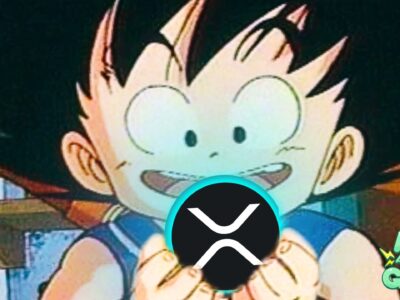
[ad_1]

The Japanese animator Hayao Miyazaki, who’s preparing at least one more cartoon film these days, was quoted in past interviews by Far Out magazine, and it shows how once again, along with bizarre attacks on American movies, he let know what kind of ambiguous stance he has on barbarism:
Over the years, Miyazaki’s political stance about America’s involvement in global conflicts as well as the country’s contribution towards the globalisation of American culture has been unwavering. “Anti-jeans, Anti-bourbon, Anti-burgers, Anti-fried chicken, Anti-cola, Anti-American coffee, Anti-New York, Anti-West Coast,” Miyazaki once said while describing his beliefs.
Wow, what’s wrong with jeans? Even in Japan, plenty of people wear them. What, does he think coal miners in Japan, a profession Levi Strauss first invented jeans for, shouldn’t wear them even if it benefits their career? Yet with the way the USA’s going now, he needn’t worry too much about globalization, because there’s only so many products becoming plagued with wokeness, they aren’t worth buying, or spending tickets for at the movie theaters. Considering what a leftist Miyazaki is, it’s actually weird he’d imply he dislikes the west coast, seeing as they’re so far left like him in California, and could share many of his visions, or worse. But wait’ll you see some of the weird comparisons he draws for the sake of his devastatingly vicious politics:
According to excerpts from multiple interviews, Miyazaki’s dislike for all things American also extends to the realm of cinema. Despite the fact that the Japanese auteur had named John Ford as one of his chief visual influences and even named his 1946 film My Darling Clementine among his personal favourites, he doesn’t feel the same way about other popular American films.
“Americans shoot things and they blow up and the like, so as you’d expect, they make movies like that,” Miyazaki stated. “If someone is the enemy, it’s okay to kill endless numbers of them. Lord of the Rings is like that. If it’s the enemy, there’s killing without separation between civilians and soldiers. That falls within collateral damage.”
Miyazaki compared the visual politics of large-scale Hollywood productions such as the Lord of the Rings to the country’s international policies. Attacking America’s actions in Afghanistan, Miyazaki claimed that such projects are a dangerous addition to public discourse because they diminish the value of human life by weaponising the audience through cinematic violence.
Miyazaki continued: “How many people are being killed in attacks in Afghanistan? The Lord of the Rings is a movie that has no problem doing that [not separating civilians from enemies, apparently]. If you read the original work, you’ll understand, but in reality, the ones who were being killed are Asians and Africans. Those who don’t know that, yet say they love fantasy are idiots.”
This has got to be one of the most bizarre attacks he’s ever made, to say nothing of analogies. And IIRC, wasn’t LOTR authored by a British novelist, J.R.R Tolkien? So what’s Miyazaki’s point? One can only wonder how Miyazaki feels now, after Joe Biden had the US military withdraw from Afghanistan, leading to only more murder and other horrors. It makes no difference to Miyazaki that the Taliban’s been murdering people who may not even be white since they retook the country in what now stands as one of the hugest failures in the face of savagery?

Some might notice how his talking points echo the far-left in America and Europe to some degree. But depending how you view this, it’s absurd how he makes it sound like explosions and combat are the only thing US cinema’s all about, when in the past, at a time when comedy and drama were more mainstream, you had stuff like Risky Business, Wayne’s World and Rain Man, to name just some notable films of their time, to appreciate, and they weren’t all flooded with CGI effects as has become far too much of a staple over the past 20-plus years.
Throughout his body work, Miyazaki has conducted continuous conversations about antiwar pacifism – an ethical belief that has been deeply influenced by his own experiences. Miyazaki has often explored the paradoxes of pacifism in a world that embraces violence through his art which is why these cinematic spectacles fail to amuse him.
When his magnum opus Spirited Away became the first anime to win Best Animated Feature Film at the Oscars, Miyazaki refused to attend the ceremony because he did not want to support America’s actions in the Iraq war. Even though his producer asked him not to speak about the issue, he later came clean and revealed that his producer had felt the same way.
Was that Harvey Weinstein, by any chance, seeing as the original Miramax was in charge of distribution at the time? It wouldn’t surprise me at all if it were, since he was quite a knee-jerk leftist himself back in the days before he wound up in prison for his sex offense crimes.
Miyazaki was also very critical of Steven Spielberg’s iconic film series Indiana Jones. Addressing many of the issues caused by capitalism in post-colonial nations, Miyazaki admonished those who failed to recognise the political and racial allegories embedded within the subtexts of supposedly innocent and purely entertaining action films.
“Even in the Indiana Jones movies, there is a white guy who, ‘bang,’ shoots people, right? Japanese people who go along and enjoy with that are unbelievably embarrassing,” he explained. “You are the ones that, ‘bang,’ get shot. Watching [those movies] without any self-awareness is unbelievable. There’s no pride, no historical perspective. You don’t know how you are viewed by a country like America.”

And Japan was the country whose government/military attacked Pearl Harbor during WW2, and earlier had been guilty of the Rape of Nanking in 1937. Why is he acting like Japan’s incapable of making mistakes? And does Miyazaki think whites aren’t qualified to mend mistakes? Additionally appalling is how a man who’s made capital himself from the cartoon films he’s produced would complain about the whole concept. Of course, lest we forget, how strange he’s so ambiguous about who Indy – and Marian Ravenwood – were shooting at in the movie, which was mainly German National Socialists stationed in north Africa. Which brings us to the subject of his most recent film, The Wind Rises, which was something like an animated biography of Jiro Horikoshi, the Japanese engineer who developed the A6M warplanes that were used in the attack on Pearl Harbor. It’s described in this review at the Washington Free Beacon:
Horikoshi (voiced by Joseph Gordon-Levitt*) was the engineer who developed the A6M “Zero” for Japan, a long-range fighter that served as one of the primary airplanes during the cowardly sneak attack of Pearl Harbor and is credited with destroying over 1,500 American aircraft.
[…] There is, apparently, some question as to whether or not in this film Miyazaki has sufficiently condemned Japan’s early-20th-century proclivity for bloodthirsty conquest. Suffice to say, I did not see a particularly strong denunciation of Japan’s behavior during the timeframe in question. But that’s because Miyazaki doesn’t actually seem all that interested in Japan’s crimes. He’s interested in the way our dreams impact our reality.
And if our dreams result in the deaths of thousands? Well, he seems to be saying, so be it.
And that’s easily the most disturbing thing about Miyazaki – the guy capitalizes on US dollars while insulting the intellect of many arthouse moviegoers. Or, he seems to have an alarmingly lenient view of Japan’s visitation of violence against US subjects, and probably even the country’s atrocious alliance with Germany during that time. To think, that this man would be embraced, sadly but predictably enough, by liberal critics over the years, forcing realists to take even his better movies with a grain of salt and separate art from artist. It’s funny though, that he’d have issues with Spielberg, since he’s quite a far-leftist himself, and his most recent movie, a remake of West Side Story, was a fiasco at the box office, mainly because it was flooded with wokeness. What it tells is that, when specific leftists so decide, they’ll turn on each other, or just never had much respect for each other at all.

Since we’re on the subject, this also reminds me that some film writers have claimed his cartoons “don’t sexualize” the lead ladies. Well I’ve done some research on several of his past movies, and that’s not entirely true: in the early 1970s, he scripted 2 short slapstick movies titled Panda, Go Panda, spotlighting an anthropomorphic bear and its son, and the lead girl in the film is a youngster who’s probably only about 10 years old, and there were several moments where her underwear was visible, particularly when she did hand-stands, exposing her drawers entirely. And then, in 1988’s My Neighbor Totoro, there’s suggested nudity, when the 2 girls are taking a bath in a tub with their father present. Something that may not sit well with most western family audiences, even if it reflects a different culture. But the point is, the hypocritical position Miyazaki takes when he may not depict older women sexually, yet runs the gauntlet of doing the same with children, is atrocious, and additionally so is when western movie critics gloss over this double-standard. For example, in this Reelviews take on Nausicaa of the Valley of the Wind, the writer assures everyone Miyazaki wasn’t “flashing”, yet in this review of Totoro, he says nothing regarding the moment with nudity involving underaged children, and whether even in animated form, this could prove embarrassing for outsiders, nor whether it qualifies as hypocrisy on Miyazaki’s part. If it hadn’t been for Miyazaki’s demand the editions sold in the west go unabridged, I’m sure that scene would’ve been omitted by US distributors. But omission or no, what’s really insulting to the intellect is if the movie was G-rated stateside. That’s hardly giving a responsible idea of what the content is like.

I think it’s a shame Miyazaki has to be such an ideologue and refuses to keep his political views in check, because some of his movies are made well, and unlike a lot of the most recent US movies, he doesn’t depict his female subjects in an absurdly masculine manner at the expense of femininity. The films he’s made that are better are the ones where anti-war themes are less noticable and fantasy elements more prominent. As some of his early films, Lupin III: Castle of Cagliostro, Nausicaa and Laputa: Castle in the Sky are certainly among his better offerings, and so is Kiki’s Delivery Service, Spirited Away and Ponyo. But films like Porco Rosso, Princess Mononoke, Howl’s Moving Castle and the Wind Rises are the really galling parts of Miyazaki’s portfolio, including how he takes such a bewilderingly “neutral” position that doesn’t make sufficient distinctions on good and evil. Which has surely got to be one of his biggest problems. And to think, that he’d see nothing wrong with the deeds of Horikoshi in the early 20th century.
If Miyazaki’s got such a negative view of America for all the wrong reasons, that’s devastating, because it indicates a man so interested in getting western audiences to embrace his visions has little more than contempt for them at the same time. It’s just plain embarrassing. As a result, who knows how well the upcoming film based on the book How Do You Live will fare when it’s ready, if USA audiences with common sense catch on to how poor an influence Miyazaki’s politics are? This of course, is also assuming the Disney corporation will even be willing to take charge of distribution this time around, because if they think his view doesn’t suit their current PC standards, who knows, they might dump him at this point. Which would only prove just how “loyal” some leftists can be towards one another, again.
Originally published here.
[ad_2]





